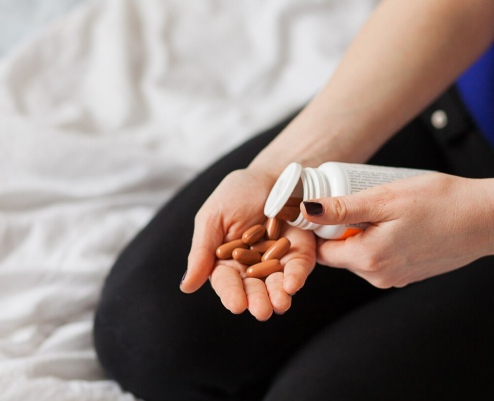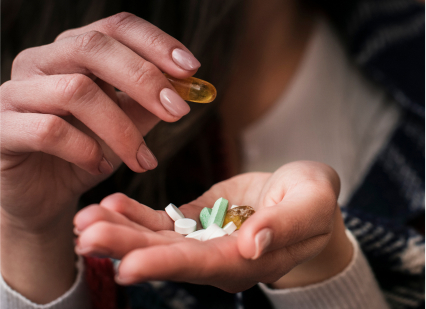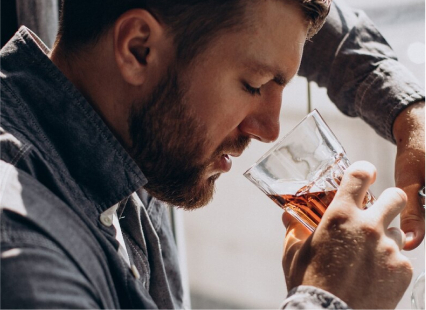When someone you love is addicted to drugs or alcohol, it is natural to want to help but to be unsure how. Feelings of hopelessness and helplessness are common in this situation. You may have tried talking to said loved one or offered various forms of help, but to no avail. You are not alone. Getting someone to admit that they have a problem and that they need to accept help is rarely a smooth and quick process. Persistence is key. In due time, you can get your loved one the help they need and deserve. Here are 8 tips for getting your loved one into a drug and alcohol treatment program:
8. Find The Right Time To Talk
Increase your chances of getting through to your loved one by trying to talk to them when they are as sober as possible. You want them to be able to think clearly about your conversation and to be able to react in a calm manner. Talking to someone when they are intoxicated may go poorly or they might even forget the conversation.
Typically, the morning or after a major drug-related incident is the best time to try and talk to someone with a drug or alcohol addiction. After an incident, they may be particularly vulnerable and receptive to getting help. Additionally, whether you plan on having a one-on-one conversation or an intervention, making plans to have a tough conversation in the morning is a safe bet.
7. Be Intentional With What You Say
Words have power and they can either drive someone away or lead to a breakthrough. Before you even try sparking a conversation or leading an intervention, make sure that everyone involved thinks long and hard about the words they use. The words you use and the way you say them is critical. Rehearse what you have to say and how you plan on saying it. Focus on being warm and open in your voice, tone, and body language. If things start to take a negative turn, change the subject and resist any urge you may have to fight or argue.
6. Understand the Recovery Process
Research addiction treatment so that you can speak intelligently about what treatment encompasses and what the different options are. Do you know what to expect from cocaine detox or how alcohol withdrawal symptoms are managed? Do you know the difference between IOP and PHP treatment? Look into different types of treatment and find a few different centers that you can present as options to your loved one. Consider the benefits of a holistic program that offers alternative addiction treatment.
Also, take the time to read through some stories written by those who have been through treatment or their families. This can help give you perspective on what to expect.
5. Become a Part of the Process
Get involved and let your loved one know that where possible, you will be by their side. Many treatment facilities include family therapy as a part of their program. In family therapy, you all can work through any underlying issues, as well as build better communication.
You can also find an open Alcoholics Anonymous or Narcotics Anonymous meeting that you can attend together. Some people prefer to attend group support meetings without their families so that they can speak more openly, but others appreciate the familiar company. Don’t be afraid to ask if they want your company and then respect the decision.
4. Set and Maintain Boundaries
There is a fine line between supporting and enabling. To avoid crossing this line, set some boundaries. Make it clear that rehab and recovery means they are expected to dedicate a certain amount of time to treatment programming. Offer support in the form of verbal affirmations, but make sure they contribute to their recovery in ways more than just showing up. This will help your loved one help themselves. They will be forced to take their recovery seriously as well as take some of the pressure and stress off of you.
3. Let Them Decide to Identify as an Addict
Don’t call your loved one an addict unless they have already identified themselves in this manner. It is up to the individual to designate how they identify. Additionally, saying “a person with an addiction” instead of “an addict” supports that they are more than their addiction and that this part of their life does not define their entire being.
2. Be Patient
Becoming an addict doesn’t happen overnight and neither does recovery. Every step of this journey is going to be a process. Getting sober takes time and staying sober does not often happen on the first try. There will be good days and bad, but consistency in your patience, love, and support will go a long way. This brings us to the last tip for getting your loved one into a drug and alcohol treatment program:
1. Don’t Give Up
An intervention does not always guarantee admission to a treatment program. If your first conversation doesn’t appear to change anything, you can never know for sure the effect it will have in their head. It might take 2 or 20 attempts before you make a breakthrough and even once your loved one does enter a drug and alcohol treatment program, this does not guarantee long term sobriety. Relapse is always a possibility. There may be times when your loved one will want to give up themselves and they may need you to keep trying for the both of you. Don’t give up. You and your love is powerful.





